Every Sunday morning, we’ll be posting articles and links that are saying something important about church, culture, and mission (or that just made us laugh). Here’s what resonated with us this week on the web:
On the SBC, Evangelicalism, and the Gay Christian
Journalist Ruth Graham recapped the Souther Baptist Convention’s ERLC leadership summit for Al Jazeera America:
The group’s president, Russell Moore, took a gentler, less combative approach than his predecessor, Richard Land, who was known to make incendiary comments. (Just last week, Land suggested on a radio show that homosexuality is caused by childhood sexual abuse.) Many Southern Baptists, like other mainstream evangelicals, have given up talk of reparative therapy for gays in favor of love, grace and “peacemaking.” At this week’s summit, Florida pastor Jimmy Scroggins called for an end to “redneck theology” and said, “We have to stop telling ‘Adam and Steve’ jokes.”
But the event was also a setting where the word “fornicators” was used without irony and gay people were referred to as “homosexuals.” The meeting — with sessions such as The Gospel and Homosexuality — made clear that these evangelicals are not wavering in their stance on certain issues: Marriage is between a man and a woman, homosexual behavior is a sin, and church leaders must not condone it. And that raises the question: In a time of fast-growing embrace of gay rights, when more of their fellow Christians are insisting there’s room for debate on the issue, can conservatives maintain their vision of orthodoxy?
Sociologist John Hawthorne worked out a multi-part series on the future of Evangelicalism:
Too much of the church’s history and the church’s present has been caught up in determining who was in and who was out. But the focus has primarily been on those on the outside of the circles we draw. This may stem from old-fashioned status anxiety — if we can define right belief and practice by separating from some others we can feel more confident in our standing with God.
But this is a a snare. The more I look for reasons to think I’m more faithful (because I reject the idea of labels as all good Christians should) then I’ve shifted the grounds for my salvation from the mystery of the resurrection to my own efforts, commitments, and arguments.
What binds us together as people of faith are these simple declarations. He is Risen Indeed! Nothing more than that.
Jonathan Merritt interviewed both Al Mohler and Matthew Vines about the release of God and the Gay Christian:
It’s among the hottest of the hot button issues in American culture, but increasingly same-sex marriage is also a matter of dispute within Christian churches. This week, the temperature rose once again with the release of “God and the Gay Christian: The Biblical Case in Support of Same-Sex Relationships” by Matthew Vines. The book, written by a former Harvard University student whose “The Bible and Homosexuality” lecture went viral on YouTube two years ago, was met with swift criticism from conservative Christians who oppose same-sex marriage and behaviors.
One such critic was Dr. Albert Mohler, president of The Southern Baptist Theological Seminary who is considered an intellectual paragon by many on Christendom’s right flank. In a response to Matthew Vines posted on his blog, Mohler issued a rallying cry for Christians to resist Vines’ attempt to “overthrow two millennia of Christian moral wisdom and biblical understanding.” He also announced the release of an e-book entitled, “God and the Gay Christian? A Response to Matthew Vines.”
On Two Important Conferences, Slow Church & Inhabit
The audio from the Slow Church conference is up at the Englewood site.
David Fitch adds some detail about his talk at Slow Church.
The Inhabit conference has just wrapped up in Seattle – be sure to check out the hashtag #Inhabit14!
On the Transition from Water to Wine
Brian Zahnd catalogues his story of transition to the second half of his pastoral and theological life:
But by 2003, now in my mid-forties, I had become, what shall I say?…bored, restless, discontent. From a certain perspective things couldn’t have been better. I had a large church with a large staff supported by a large budget worshiping in a large complex. I was large and in charge! I had made it to the big time. But I had become increasingly dissatisfied. I was weary of the tired clichés of bumper-sticker evangelicalism. I was disenchanted by a paper-thin Christianity propped up by cheap certitude. The politicized faith of the Religious Right was driving me crazy. I was yearning for something deeper, richer, fuller. Let me say it this way — I was in Cana and the wine had run out. I needed Jesus to perform a miracle.
Don’t misunderstand me, my faith in Jesus never wavered. This wasn’t a “crisis of faith” in that sense. I believed in Jesus! What I knew was that Jesus deserved something better than “cotton candy Christianity.” Like Bilbo Baggins I felt “thin, sort of stretched, like butter scraped over too much bread.” I’d reached the point where something had to be done. I was no longer satisfied with the “cutting edge” and “successful.” I had lost my appetite for the mass-produced soda-like Christianity of pop-culture America. I wanted vintage wine from old vines. I don’t know exactly how I knew this, but I knew it.
On Color-blindedness, Moral Failure, and the Evangelical Cult
Morgan Guyton offers insights on the claim to being “color-blind” with regard to race:
When people today say they’re racially “color-blind,” they’re usually making a very specific ideological statement, that they can rise above their cultural preferences (just like the original Enlightenment thinkers) and judge all people “equally” regardless of skin-color and solely based on their “merits.” Here’s the very large unrecognized assumption that’s being made here: that human worth can be boiled down to a single number so that one person can be said to have “more” merit than the next person. I imagine that most cultures throughout history would scratch their heads at the idea that people’s identity can be reduced to a number that ranks them above or below other people. Some people are simply better at hunting; others are better at blacksmithing; others are better at playing the flute; but the idea that the variety of skills and idiosyncrasies in each human being needs to be boiled down to a single number called “merit” is a thoroughly “white” Enlightenment concept, because it expresses the goal of trying to strip away all specificity and subjectivity from reality to convert it into universal data that can be evaluated objectively and rationally.
Ed Stetzer looks at the necessity of public confession and repentance “When Pastors Fall”:
Yet, some pastors want to stop there, quoting verses that say you cannot touch the “anointed.” They sometimes think that disagreeing with them is the same as disagreeing with the Lord.
Such an attitude reflects an attitude that doesn’t take the rest of scripture seriously. Sin matters, and when that sin happens in the life of a public spiritual leader, the great damage can be done. The scriptural teaching takes that into account as well.
So, while pastors have a higher scriptural standard to receive criticism– and cultural realities exist making it harder to make such accusations– pastors also have a higher standard to repentance. Yes, repentance should be evident when any believer is caught in sin, but something more is required when a pastor is involved, and this matters just as much as the cautions against accusations.
Alan Molineaux asks, “Can Your Evangelical Church Be Called a Cult?”:
If it quacks like a duck, walks like a duck, and looks like a duck then it is probably a duck: or so the saying goes.
I have been part of the evangelical culture since 1975 when as a teenager I attended a small church in the east side of Manchester, England. At the time I was impressed by the community and the clarity with which they presented their ideas.
Over the years, however, I have seen my fair share of dysfunctionality; some of which was my own. There does seem to be a pattern in some of these moments that I believe is worthy of consideration.
First of all let me say that I am committed to remaining within the evangelical community, even though some of my views have been met with the kinds of reaction that suggests others might not agree.
Having said that I am not of a mind to stay silent about important issues just to be seen to tow the party line; it never ceases to amaze me how often people call for silence in the name of unity without recognising how this can have a tendency to enable unhealthy cultures.
So what did we miss? What have you read or written this week that needs to be shared? Feel free to add your links in the comments!
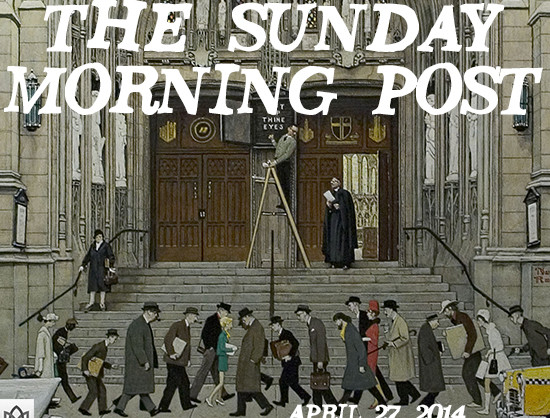

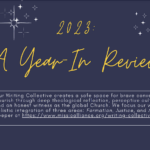



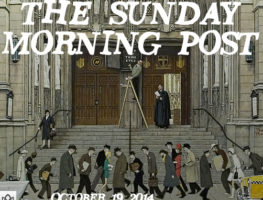
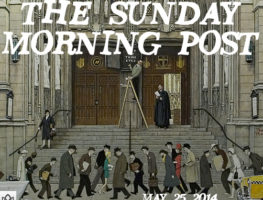

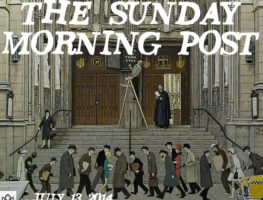
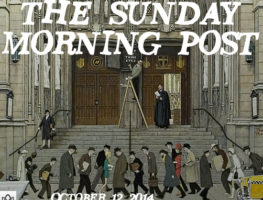
Missio Alliance Comment Policy
The Missio Alliance Writing Collectives exist as a ministry of writing to resource theological practitioners for mission. From our Leading Voices to our regular Writing Team and those invited to publish with us as Community Voices, we are creating a space for thoughtful engagement of critical issues and questions facing the North American Church in God’s mission. This sort of thoughtful engagement is something that we seek to engender not only in our publishing, but in conversations that unfold as a result in the comment section of our articles.
Unfortunately, because of the relational distance introduced by online communication, “thoughtful engagement” and “comment sections” seldom go hand in hand. At the same time, censorship of comments by those who disagree with points made by authors, whose anger or limited perspective taints their words, or who simply feel the need to express their own opinion on a topic without any meaningful engagement with the article or comment in question can mask an important window into the true state of Christian discourse. As such, Missio Alliance sets forth the following suggestions for those who wish to engage in conversation around our writing:
1. Seek to understand the author’s intent.
If you disagree with something the an author said, consider framing your response as, “I hear you as saying _________. Am I understanding you correctly? If so, here’s why I disagree. _____________.
2. Seek to make your own voice heard.
We deeply desire and value the voice and perspective of our readers. However you may react to an article we publish or a fellow commenter, we encourage you to set forth that reaction is the most constructive way possible. Use your voice and perspective to move conversation forward rather than shut it down.
3. Share your story.
One of our favorite tenants is that “an enemy is someone whose story we haven’t heard.” Very often disagreements and rants are the result of people talking past rather than to one another. Everyone’s perspective is intimately bound up with their own stories – their contexts and experiences. We encourage you to couch your comments in whatever aspect of your own story might help others understand where you are coming from.
In view of those suggestions for shaping conversation on our site and in an effort to curate a hospitable space of open conversation, Missio Alliance may delete comments and/or ban users who show no regard for constructive engagement, especially those whose comments are easily construed as trolling, threatening, or abusive.